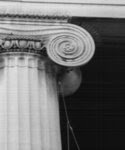Isn't that a simple rule? But for some reason, many closing agents and title companies just can't quite seem to follow this rule. When I look at a title/closing/escrow company's trust or escrow account check register for a particular file, it needs to match exactly what is on the HUD-1 Settlement Statement. So, if the seller is getting $23,000 on the settlement statement, your check register better show a check to the seller for $23,000. Not only that, but the names need to match. If the settlement statement says "Repairs to Smith Construction," that check best have gone to Smith Construction, and not back to the buyer or seller. Likewise, the seller's proceeds need to go to the seller, not to the seller AND the buyer, as some of the "flexible" closing agents will do.
The buyer and seller sign under this language on the HUD-1 Settlement Statement:
I have carefully reviewed the HUD-1 Settlement Statement and to the best of my knowledge and belief, it is a true and accurate statement of all the receipts and disbursements made on my account or by me in this transaction.
The closing agent signs this:
The HUD-1 Settlement Statement which I have prepared is a true and accurate account of this transaction. I have caused or will cause the funds to be disbursed in accordance with this statement.
Those statements are pretty simple too, aren't they? What often happens is that the purchase agreement says that the seller will pay $3,000 of the buyer's closing costs (we won't discuss the fact that they have artificially inflated the purchase price by that $3,000). Sometimes, the closings costs don't amount to $3,000. Sometimes, the lender will not allow the seller to pay certain closing costs. Sometimes, the buyer would end up getting money back if the buyer gets the full $3,000, and the lender does not allow the buyer to get a check at closing. Doesn't matter.
Let's say the lender, for whatever reason, only allows the buyer to receive a credit for $2,000 of the $3,000 seller paid closing costs. The loan officers and real estate agents will beg, plead, and argue that you should give the seller $22,000 of the $23,000 shown on the settlement statement, and give the other $1,000 to the buyer. When the real estate agents and the loan officer are telling you that it's not fair if the buyer doesn't get the full $3,000, that all the other title companies in town will cut checks which differ from the settlement statement, go back and read what you just signed:
The HUD-1 Settlement Statement which I have prepared is a true and accurate account of this transaction. I have caused or will cause the funds to be disbursed in accordance with this statement.
And then ask yourself if their business is worth damaging your community, hurting our economy, and committing mortgage, RESPA, mail, and wire fraud.
www.thomasmoens.com
Thursday, January 31, 2008
Subscribe to:
Comments (Atom)

